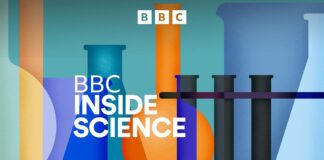Social media is driving an alarming trend: men are increasingly seeking testosterone replacement therapy (TRT) without a genuine medical need. Doctors warn this surge in demand is overwhelming already strained NHS services and putting patients at risk of unnecessary side effects.
Testosterone replacement therapy is a prescription medication used to treat clinically diagnosed hypogonadism—a condition where the body doesn’t produce enough testosterone. It’s typically prescribed after extensive testing confirms low testosterone levels accompanied by specific symptoms like reduced sex drive, fatigue, and erectile dysfunction.
However, a wave of viral videos on platforms like TikTok and Instagram are misrepresenting TRT as a quick fix for common issues like low energy, poor concentration, or even aging. These videos often promote private blood tests marketed as the first step toward obtaining testosterone supplements, blurring the line between medical care and lifestyle marketing.
The Problem with ‘Lifestyle Testosterone’
This online trend has alarming consequences for men’s health. Doctors are witnessing a direct correlation: more patients are arriving at clinics after undergoing these unregulated private blood tests, often influenced by social media influencers promoting such services. Many of these individuals, however, have normal testosterone levels and don’t require treatment.
“We used to see patients with adrenal problems or diabetes,” says Professor Channa Jayasena, chair of the Society for Endocrinology Andrology Network, “Now clinics are flooded with men who’ve had these private tests and been wrongly advised they need TRT.”
Unnecessary testosterone use can lead to serious health issues. It suppresses the body’s natural hormone production, potentially causing infertility. Additionally, there is a heightened risk of blood clots, heart problems, and mood disorders associated with unregulated testosterone intake.
Ethical Concerns and Unregulated Practices
While advertising prescription drugs directly in the UK is illegal, the line between promoting health information and medical advice blurs on social media. Many TikTok influencers with large followings are partnering with private clinics, offering discount codes or giveaways for blood tests that act as a gateway to TRT.
These posts often exploit anxieties surrounding aging, masculinity, and performance, implying that low testosterone is the root cause of common issues like tiredness or lack of muscle mass. This creates a climate where men feel pressured to seek potentially unnecessary treatment.
The Advertising Standards Authority (ASA) is currently investigating several such posts flagged by The Guardian due to their potential violation of advertising regulations.
Backlash and Calls for Action
“It’s a huge problem,” emphasizes Professor Jayasena, “Hospital specialists are seeing patients coming in after having private blood tests, often arranged through influencers, perhaps, and then being told by inexperienced doctors or other healthcare professionals that they should start testosterone.” He stresses that these clinics often initiate TRT for men with normal testosterone levels, leading to unnecessary and potentially harmful interventions.
The rise of social media-driven TRT demand highlights a critical need for increased awareness among both the public and healthcare providers.
Clearer guidelines are needed to regulate online health marketing and better protect vulnerable individuals from misleading information that can negatively impact their health and well-being.























